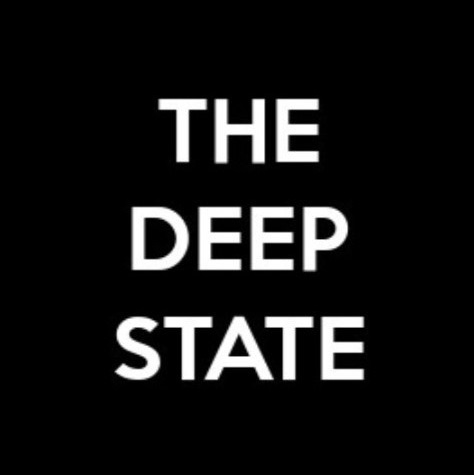 The term deep state is common in anti-establishment circles. It comes from the Turkish word derin devlet (lit. deep state) and has negative connotations. A deep state is a type of government made up of potentially secret and unauthorized networks of power operating independently of a state's political leadership in pursuit of their own agenda and goals. It's a very fascinating conspiracy theory. But is there any evidence supporting the theory? Sure, there may be small pockets of resistence, reluctance, idleness and slow-moving organizations here and there, but does a colluding deep state exist? Some politicians blame their political failures or shortcomings on a deep state. Most politicians are good at churning out their opinions, but often lack the theoretical knowledge and practical skills to make a difference. In a democracy civil servants advise, but ministers decide. A good civil servant isn't afraid of speaking truth to power. After all, they are paid to point out financial, admininistrative or legal problems so that politicians can make well-informed decisions. Basically, the problem isn't that politicians listen too much to advisors. On the contrary, they listen too little. They often end up whining: how hard can it be? Well, changing policy isn't easy. It's not unlike a pick-up sticks game. The sticks are intricate connected. If you move one stick, you may move other sticks as well. Experimenting is very costly and the traces deter. The deep state is a chimera in the minds of the conspiracists. Why is a deep state not conceivable? We blatantly overestimate bureaucracies. They lack the abillity to coerce, cooperate and coordinate. The inability to deliver must be sought elsewhere. And the answer? The dog ate my homework.
The term deep state is common in anti-establishment circles. It comes from the Turkish word derin devlet (lit. deep state) and has negative connotations. A deep state is a type of government made up of potentially secret and unauthorized networks of power operating independently of a state's political leadership in pursuit of their own agenda and goals. It's a very fascinating conspiracy theory. But is there any evidence supporting the theory? Sure, there may be small pockets of resistence, reluctance, idleness and slow-moving organizations here and there, but does a colluding deep state exist? Some politicians blame their political failures or shortcomings on a deep state. Most politicians are good at churning out their opinions, but often lack the theoretical knowledge and practical skills to make a difference. In a democracy civil servants advise, but ministers decide. A good civil servant isn't afraid of speaking truth to power. After all, they are paid to point out financial, admininistrative or legal problems so that politicians can make well-informed decisions. Basically, the problem isn't that politicians listen too much to advisors. On the contrary, they listen too little. They often end up whining: how hard can it be? Well, changing policy isn't easy. It's not unlike a pick-up sticks game. The sticks are intricate connected. If you move one stick, you may move other sticks as well. Experimenting is very costly and the traces deter. The deep state is a chimera in the minds of the conspiracists. Why is a deep state not conceivable? We blatantly overestimate bureaucracies. They lack the abillity to coerce, cooperate and coordinate. The inability to deliver must be sought elsewhere. And the answer? The dog ate my homework.
Featured
"The deep state"
Konztroll
Hits: 1115
